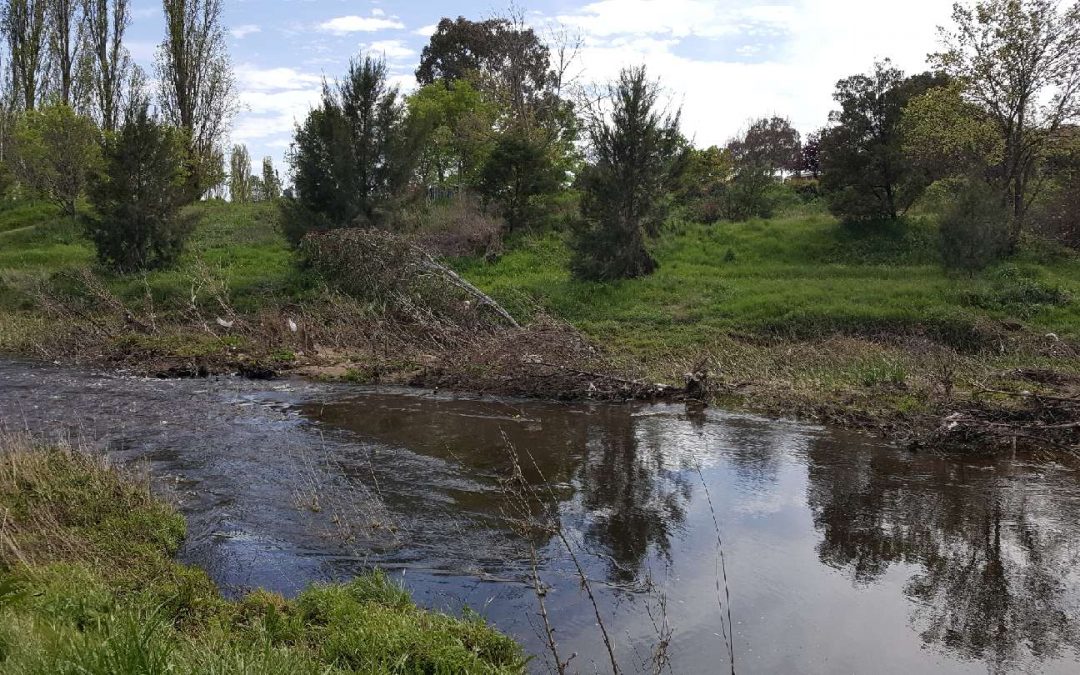Earlier this month I enjoyed an afternoon walk with Queanbeyan locals who have been keeping a close eye on the city’s river for many years.
We walked along their stretch of Queanbeyan River, from Dane Street at Karabar upriver to Barracks Flat. The path was busy with people cycling, carting kayaks, running and ambling (as we were). Other folk were fishing and sunbaking on the river bank.
As we walked, they pointed out water skinks and the larger water dragons, sunning themselves on warm rocks and the remnants of an old terraced garden someone had created on the steep western slope.
We walked past the spot someone sits to count platypus and spied some of the local native bird species that have made their homes in shrubs and trees that cling to the sides of the river valley. Among those my fellow walkers have seen are fantails, pardalotes, eastern spinebills, silvereyes, kingfishers and rainbow bee-eaters.
Someone recalled when they used to swim in the river in earlier days and the conversation turned to water quality including recent sediment runoff from building works.
Weeds are also a challenge, copious in some places including in the river channel and they need managing. It’s a big job and the locals are eager to help. They care about the river and we got to talking about how residents could be involved in practical ways.
The shape of the river has been changing a lot this year with regular heavy rainfall, steady releases from Googong Dam, which is full, and flooding. It’s been fascinating to watch. You can see the trees still bent from the weight of the water and plant debris high in branches.
This run of wet weather has dredged up old pieces of machinery and sadly dumped plastic and other pollution into the waterway.
The floods have also exposed issues with stormwater where pollution has flowed into the river. This needs attention, such as the installation of stormwater traps, and awareness campaigns about disposing of waste responsibly.
Keeping our waterways healthy is important for people and wildlife. It requires better land management to limit soil erosion and weed infestations, as well as pollution.
Greens on QPRC will make protecting and restoring nature a priority.
Authorised by Sylvia Hale for The Greens NSW, Suite D, 263-279 Broadway, GLEBE NSW 2037

